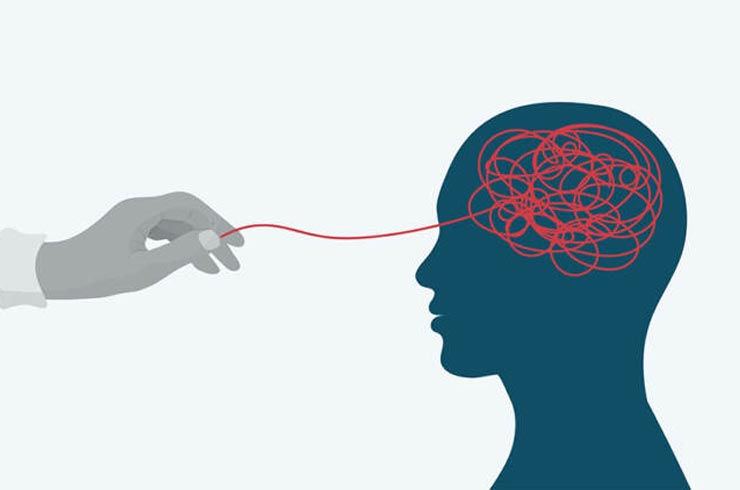Cognitive Behavioral Therapy for PTSD
- Avery Therapy Centre
- Aug 2, 2022
- 4 min read

What is Cognitive Behavior Therapy?
Do you have post-traumatic stress disorder (PTSD), or do you know someone who does? If so, you may have heard of cognitive behavioural therapy as a method to help cope with the symptoms of this disorder. But what exactly is cognitive behavioural therapy, and how does it differ from traditional forms of therapy
Cognitive-behavioural therapy (CBT) is a type of psychotherapy that helps people change the way they think and behave to cope with their PTSD symptoms. Unlike traditional talking therapy, CBT focuses on the here and now rather than the past. This means that CBT can be a very effective treatment for PTSD, as it helps people deal with their symptoms in the present moment.
What are the different types of Cognitive Behavioral Therapy?
There are many differing CBT models, but each is based on the same principles. These are:
Identify the problem. You first need to identify the situation to change how you think and behave.
Create a list of possible solutions
Examine each solution and assess how each could help or hinder your current lifestyle.
Decide on a solution that you can apply to the problem you are experiencing.
Implement the solution.
Below are some leading CBT models and the types of problems they can assist with.
Mindfulness-Based Cognitive Therapy (MBCT)
This model is based on the principles of mindfulness, which means paying attention to your thoughts and feelings in the present moment without judging them. MBCT can help you become more aware of your thoughts and feelings and understand how they affect your behaviour. MBCT is often used for treating anxiety, depression, and bipolar disorder.
Acceptance and Commitment Therapy (ACT)
This behaviourally orientated technique is based on positive reinforcement and counter-conditioning benefits. In essence, it is about accepting your thoughts and feelings rather than trying to change them. ACT can help you become more aware of your thoughts and feelings and understand how they affect your behaviour. ACT is often used for treating problems regulating emotions, thoughts, impulses, and feelings.
Rational Emotive Behaviour Therapy (REBT)
REBT is rooted in the idea that our thoughts and emotions are based on our beliefs. REBT can help you examine your beliefs and understand how they affect your thoughts and emotions. REBT is often used for treating anxiety, depression, guilt, and anger.
Dialectical Behaviour Therapy (DBT)
DBT is a problem-solving strategy aimed at helping patients find acceptance in themselves rather than trying to change the way they think. DBT can help you become more aware of your thoughts and feelings and understand how they affect your behaviour. DBT is often used for treating borderline personality disorder, substance abuse, eating disorders, and PTSD. It is this flavour of CBT that we will discuss further.
How does CBT help with PTSD?
Traditionally there are two ways to treat PTSD, the first being medication and the second being talking therapies. As the proverb goes, a problem shared is a problem halved, and cognitive behavioural therapy provides an opportunity to share your experiences with a trained professional in a safe and confidential environment.
CBT can help you understand your symptoms and how they affect your life. It can also teach you new coping strategies for dealing with your symptoms. For example, if you suffer from flashbacks, you may be taught how to ground yourself in the present moment so that you can focus on the here and now rather than on the past.
For DBT specifically, the trauma-focused approach helps patients deal with early childhood traumas, abusive histories, troubled adulthoods, or veterans. This is especially valuable for trauma victims who can sometimes feel like their symptoms are never-ending.
CBT has been found to be an effective treatment for PTSD, with studies showing that it can reduce the severity of symptoms and improve quality of life. There are many different types of CBT.
What are the benefits of cognitive-behavioural therapy?
CBT is an effective treatment for a wide range of mental health conditions, including depression, anxiety, eating disorders, substance abuse, PTSD, and more. CBT can be used to help people manage their symptoms, identify and change negative thought patterns, and improve their coping skills.
PTSD is a condition that can develop after a person experiences or witnesses a traumatic event, such as a natural disaster, a car accident, or a violent attack. Symptoms of PTSD can include flashbacks, nightmares, anxiety, and depression.
By going through the CBT process, people with PTSD can learn to manage their symptoms and improve their quality of life without the need for medications that can dull the patient's positive life experiences, even as they attempt to reduce the negative moments.
By treating PTSD, patients can regain their ability to sleep well at night, set aside troubling thoughts, and adjust physical and mental responses to triggering stimuli.
Final thoughts on CBT for PTSD
CBT has been shown to be an effective treatment for a wide range of mental health conditions, including PTSD. CBT can help people manage their symptoms, identify and change negative thought patterns, and improve their coping skills.
If you or someone you know is struggling with PTSD, cognitive-behavioural therapy can help. CBT is an effective treatment for PTSD, with studies showing that it can reduce the severity of symptoms and improve quality of life. If you are interested in learning more about cognitive-behavioural therapy, please contact a mental health professional or contact us. We'll be happy to help you through any hard times you are currently experiencing.




Comments